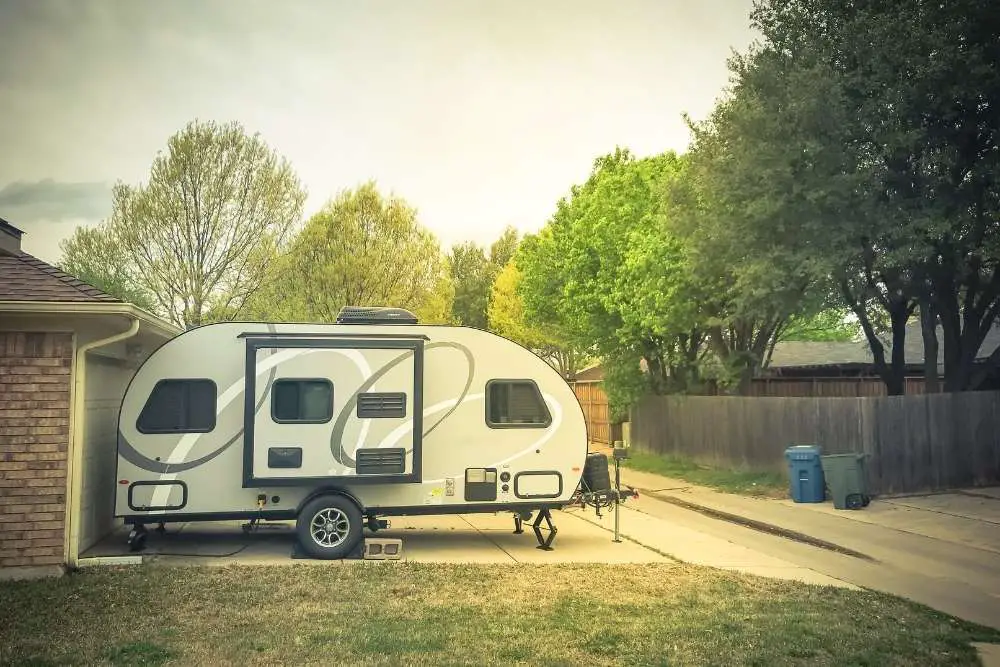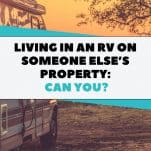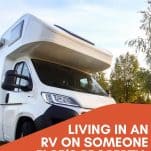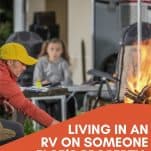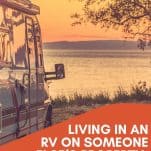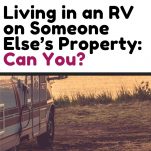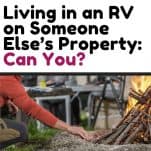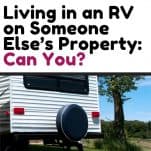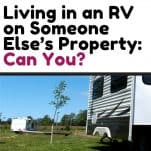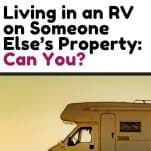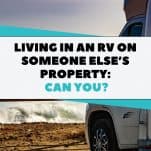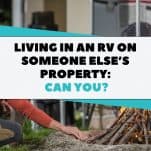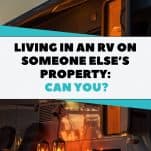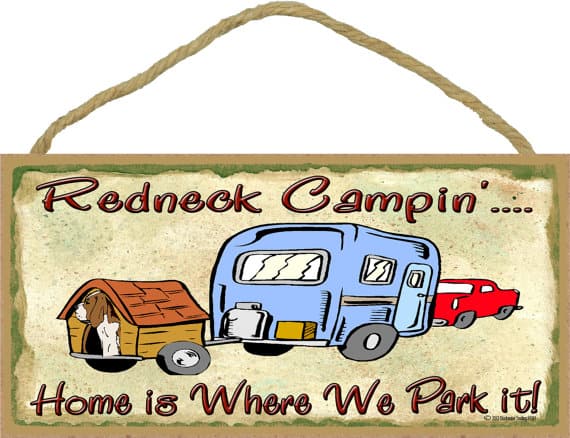RV stands for recreational vehicle, and it’s a common thing to see these days. But if you want to live in one full time, can you live in an RV on someone else’s property?
The answer is yes, but there are a few things to consider before you park your RV and live in someone’s backyard. There are many advantages of living this way that make it more desirable than traditional housing. However, there are also some disadvantages as well. We will talk about them here so that you know what to expect before making your decision.
RV living is something that can be difficult to figure out. With this in mind, many people are unsure about the rules when it comes to RV life. There’s actually a lot more regulations than you may have thought there were! Trying to work through these things could leave someone feeling overwhelmed–but hopefully not for too long!
Know Your Zoning Laws and Location:
Given the ever-changing and complex world in which we live, it’s important to know your zoning laws because they can save you a lot of time, money, and effort. Nobody wants anything bad (getting into trouble or getting fined) to happen as a result of not knowing their zoning laws, so taking a few minutes out of each day is worth avoiding these things that nobody really needs on top of everything else going on with our lives right now!
Zoning laws vary from district to district and state to state, so if you are moving around or have a desire to live in more than one geographical location, it would be wise for you to check the zoning laws for each of those locations.
The best way to find out your zoning laws is just by calling up the courthouse. Even if they don’t have what you need, I’m sure they can direct you somewhere that does! Another great idea is a simple search–most of the time, there will be some sort of information on it, and being informed about these things could save you from big trouble in the future.
Road Access and Utilities:
When choosing a place to park your RV and live, you have to make sure that you have access to the road and utilities. Accessing roads is very important for safety purposes; not only do people need quick updates about emergencies but in case of an emergency, it’s crucial they can reach everyone possible quickly too. This means making sure there are safe ways on and off the highways so if someone needs help or has some sort of accident, they can get assistance as soon as possible!
When you are living on someone’s property, the best way to get your utilities is by hooking up to their main house. This means that you’ll be able to connect a hose from their property so that freshwater can reach your tank and an extension cord for electricity in the RV. If there isn’t already fuel stored in your gas tank, don’t worry! There should be at least one nearby store where it is possible to fill up or buy as much as needed.
How to Find Someone Else’s Property to Live on:
If you’re looking for a place to park your RV and live on, it can be intimidating. But don’t worry – we’ve got some pointers!
Family: There are a ton of benefits to living with your family. You’ll have all the resources you need, and they can be less awkward than other options because everyone knows each other already! All you have to do is ask someone if there’s space for you on their property, then work out everything from rent costs, utility payment plan details, parking arrangements, etc., and move in!
Friends: There are a few alternatives if you do not have any family that is willing or able to let you move onto their property. This can be a bit awkward for people because it involves asking them and making sure they agree with what’s going on before moving in. However, if you are close enough and comfortable enough already, it could also turn out great! Just talk through all of the details beforehand so that there aren’t any surprises later on- things will go much more smoothly from here until now.
Ads: If you don’t have any friends or family available to help, turn to a classified ad. Always be wary of where you’re moving into and make sure the people who are allowing your stay on their property are trustworthy – they will need at least one reference from someone else in that community for each person living there before letting them move in with no questions asked.
Negotiating Utilities With the Owner of the Property:
Negotiating utilities with the owners of a property can be a frustrating task. However, there are ways to solve this problem easily and without any awkwardness at all.
One way to do this is by having a set amount of money they charge you each month. This makes it easier for both sides, and the landlord knows exactly how much he or she will get, not depending on what your usage might be like that particular month–you won’t have any surprises come bill time! The only downside is some landlords may not feel comfortable because if your usage changes from one month to month, then you might use up more or less than our original plans allowed for.
When you are looking to pay your utility bill, it might be the best route to go month by month. Your landlord will need to subtract their average usage from what is left on the bill and then whatever that number comes out to. This can cause problems because not only does this depend on which months use more or less of utilities but also whether you or your landlord wants to pick up a tab for something they didn’t do (or may have used). So make sure everything stays honest and fair so there won’t be any unnecessary drama between either party involved!
It’s important to both you and your landlord that you’re able to keep a fair relationship. Sit down together, chat about the issue at hand, and come up with a compromise between what each of you wants, so there are no problems in your agreement!
Learn About Federal and State Laws:
It’s important to be aware of all the laws that apply when living in an RV. Some states have strict zoning regulations, while others don’t regulate at all – you’ll need to check with your individual state and county for more information about what applies where. Laws vary by location, so it’s best not only to know which rules are relevant but also to keep up-to-date on any changes or updates involving your local area too!
In Conclusion
Living in an RV can be a unique experience. One that feels freeing and fun, but it’s important to do your research first, or you might find yourself breaking the law! For example: In some areas of the country, living on someone else’s property is allowed if they give their consent for this action as long as RVs are following laws such as keeping safe distances from neighboring homes. However, other states have strict rules about how close these dwellings may be placed to one another, so always make sure by doing homework before making any decisions.
The next thing you will need to decide is where and how the utilities are going to be paid. These can be a little awkward sometimes, but they should not intimidate you too much. There are three different options: living with family, friends, or strangers. After all, there are people out there looking to rent their backyard to those just like us!
All you have to do is make sure they are trustworthy and safe for your sake. With utilities, it’s easy: either pay a set amount or figure out the difference each month- whichever works best for you! Both come with their own issues, but as long as both of us can work together, we should be able to solve any problems that arise without hassle.
An RV adventure can be a lot of fun, but safety should always come first. Make sure you follow the law and never take a risk when it comes to your safety.

